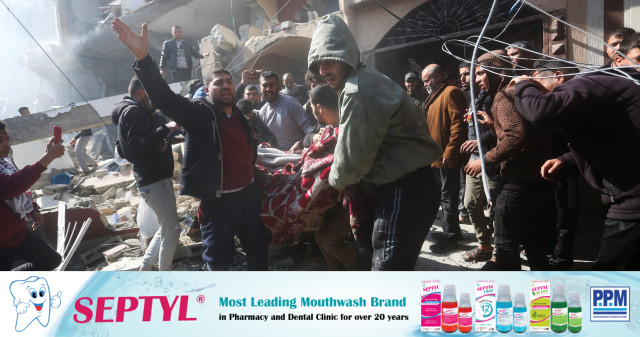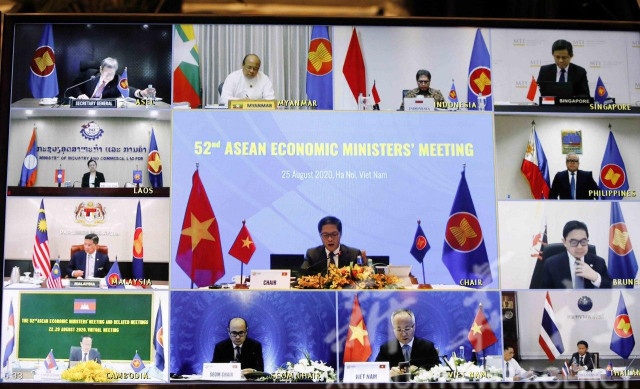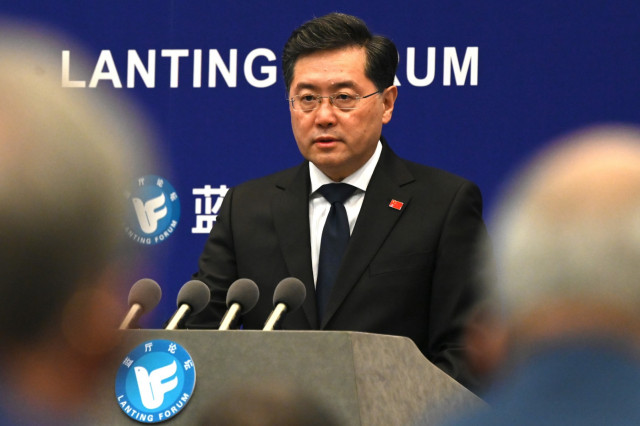Israeli Media Report Progress on Reaching a Temporary Truce in Gaza and a Hostage-Prisoner Exchange

- By Associated Press (AP)
- February 25, 2024 4:00 PM
TEL AVIV, Israel — Mediators are making progress on an agreement for a weekslong cease-fire between Israel and Hamas and the release of dozens of hostages held in Gaza as well as Palestinians imprisoned by Israel, Israeli media reported Sunday.
Israel's War Cabinet met to discuss the proposal late Saturday, but there was no official word on what they had decided. Several Israeli media outlets, citing unnamed officials, said it tacitly approved the deal and that Israel would send a delegation to Qatar for further discussions.
Hamas says it has not yet been involved in the latest proposal developed by the United States, Egypt and Qatar, but the reported outline largely matches its earlier demands for the first phase of a truce. Hamas' top political leader, Ismail Haniyeh, was in Cairo last week.
Israel is meanwhile developing plans for expanding its offensive to the southernmost city of Rafah, on the Gaza-Egypt border, where more than half the territory's population of 2.3 million have sought refuge in squalid tent camps, packed apartments and overflowing shelters. Aid groups have warned of a catastrophe and the U.S. and other allies of Israel have said it must avoid harming civilians.
Israeli Prime Minister Benjamin Netanyahu said he'll convene the Cabinet this week to "approve the operational plans for action in Rafah," including the evacuation of civilians.
A senior official from Egypt, which along with Qatar is a mediator between Israel and the Hamas militant group, said Saturday that the draft cease-fire deal includes the release of up to 40 women and older hostages in return for up to 300 Palestinian prisoners, mostly women, minors and older people.
The Egyptian official, speaking on condition of anonymity to discuss the negotiations, said the proposed six-week pause in fighting would include allowing hundreds of trucks to bring desperately needed aid into Gaza every day, including the northern half of the besieged territory. He said that both sides agreed to continue negotiations during the pause for further releases and a permanent cease-fire.
The prime minister's office did not respond to a request for comment on the War Cabinet's discussions or the Israeli media reports.
Negotiators face an unofficial deadline of the start of the Muslim holy month of Ramadan around March 10, a period that often sees heightened Israeli-Palestinian tensions.
Hamas has said it will not release all of the remaining hostages until Israel ends its offensive and withdraws its forces from the territory, and is also demanding the release of hundreds of Palestinian prisoners, including senior militants — conditions Netanyahu has vehemently rejected.
But an earlier proposal from Hamas outlined an initial phase that resembles the reported draft agreement, indicating the two sides might be able to converge on a temporary cease-fire.
Israel declared war after the Oct. 7 Hamas attack on southern Israel, in which militants killed about 1,200 people, mostly civilians, and took around 250 hostages. More than 100 hostages were released in a cease-fire and exchange deal in November. Around 130 remain in captivity, a fourth of whom are believed to be dead.
Families of the hostages have followed the fits and starts of the negotiations with hope and anguish.
"It feels like Schindler's list. Will he be on the list or not?" Shelly Shem Tov, the mother of Omer, 21, who is held captive, told Israeli Army Radio of her son's chances of being freed in an emerging deal.
Israel responded to the attack with a massive air and ground offensive that has driven around 80% of Gaza's population from their homes, putting hundreds of thousands at risk of starvation and the spread of infectious disease. The Health Ministry in Hamas-ruled Gaza says 29,606 Palestinians have been killed since the start of the war, two-thirds of them women and children.
The ministry's death toll doesn't distinguish between civilians and combatants. Israel says its troops have killed more than 10,000 militants, without providing evidence.
The war has devastated the territory's health sector, with less than half of hospitals even partially functioning as scores are killed each day in Israeli bombardment.
At the Emirates Hospital in Rafah, three to four newborns are placed in each of its 20 incubators, which are designed for just one. Dr. Amal Ismail said two to three newborns die in a single shift, in part because many of their families live in tents in rainy, cold weather.
"No matter how much we work with them, it is all wasted," she said. "There is no health improvement because of the conditions of living in a tent."
Netanyahu has vowed to fight until "total victory," but is under intense pressure at home to reach a deal with Hamas to free the hostages. Police used a water cannon to disperse anti-government protesters in Tel Aviv late Saturday, and 18 people were arrested. Others protested in Jerusalem.















